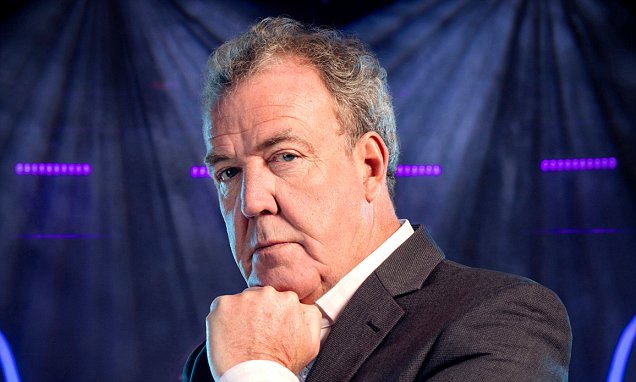Christopher Stevens Critiques Michael Sheen's Channel 4 Debt Giveaway

Table of Contents
Stevens' Key Arguments Against the Debt Giveaway
Christopher Stevens' critique of Michael Sheen's Channel 4 debt giveaway isn't merely a dismissal of generosity; it's a carefully constructed argument questioning the program's efficacy and ethical soundness. His concerns center on several key points:
Concerns about the long-term impact
Stevens argues that the immediate relief offered by the debt giveaway fails to address the underlying causes of debt. He suggests that simply wiping away debt without providing tools for sustainable financial management is akin to treating a symptom, not the disease.
- Lack of sustainable solutions: The program, Stevens contends, lacks a crucial component: long-term financial education and support. Recipients receive a financial windfall, but without guidance on budgeting, debt management, or financial planning, they risk falling back into debt.
- Potential for misuse of funds: The absence of stringent monitoring mechanisms raises concerns about how the funds might be used. Will the money truly alleviate financial hardship, or could it be misused, potentially exacerbating existing problems?
- Focus on immediate gratification over long-term financial stability: Stevens critiques the show's emphasis on immediate gratification rather than promoting sustainable financial practices. He argues that such a focus might hinder the development of long-term financial responsibility among recipients.
Critique of the selection process
A significant aspect of Stevens' critique targets the selection process for debt relief recipients. He questions the fairness and transparency of the criteria used, suggesting potential biases and loopholes.
- Bias in selection: Stevens alleges a lack of impartiality in choosing recipients, potentially favoring those with compelling narratives over those with the most pressing financial needs. The selection process, he argues, might not accurately reflect the diversity of individuals struggling with debt.
- Lack of rigorous vetting: The program's seemingly swift selection process might not have allowed for sufficient background checks or verification of individual circumstances, raising questions about the accuracy of the chosen recipients' financial situations.
- Potential for exploitation of the system: Stevens expresses concerns that the program's high profile could attract individuals seeking to exploit the system for personal gain rather than genuine financial relief.
Questioning the overall effectiveness of the initiative
Beyond specific criticisms, Stevens questions the overall effectiveness of the initiative in achieving its stated goals. He argues for a more evidence-based approach to assess its true impact.
- Lack of measurable outcomes: Stevens points to a lack of concrete metrics to gauge the long-term success of the program. Without robust data on the post-giveaway financial well-being of recipients, it's difficult to determine the program’s true impact.
- Potential for negative publicity for those involved: The highly publicized nature of the show could inadvertently lead to negative consequences for participants, even if their situations improve.
- Concerns about the long-term financial health of recipients: Stevens highlights the potential for recipients to relapse into debt without consistent support and financial literacy training.
Sheen's Defense and the Counterarguments
Michael Sheen, naturally, defends his initiative. His counterarguments aim to address the criticisms and highlight the positive impact of the debt giveaway.
Sheen's intentions and rationale behind the initiative
Sheen's motivation stems from a deep-seated commitment to social justice and a belief in the transformative power of financial freedom. He aims to alleviate immediate suffering and challenge societal inequalities.
- Emphasis on immediate aid: Sheen prioritizes providing immediate relief to those burdened by debt, viewing it as a crucial first step towards financial stability.
- Belief in the transformative power of financial freedom: He argues that freeing individuals from the crushing weight of debt can unlock their potential and empower them to build better lives.
- Desire to challenge societal inequalities: Sheen frames his initiative as a challenge to systemic inequalities that contribute to widespread debt problems.
Responses to Stevens' criticisms
Sheen, or representatives on his behalf, have responded to Stevens' criticisms, often defending the selection process and highlighting anecdotal evidence of positive impacts on recipients' lives.
- Defense of selection criteria: Arguments have been made about the thoroughness of the selection process, emphasizing the human element and the importance of individual stories in highlighting the human cost of debt.
- Claims of positive impact on recipients' lives: Anecdotal evidence of improved mental health and overall well-being among recipients has been presented as evidence of the program’s success.
- Arguments about the importance of publicity in highlighting social issues: The high-profile nature of the show is defended as a crucial tool to raise awareness about debt-related problems and encourage broader societal discussion.
Public opinion and media reaction to the debt giveaway
The debt giveaway has generated a wide range of reactions, both positive and negative, across social media and mainstream media.
- Positive social media reactions: Many social media users have praised Sheen's generosity and the positive impact on individual lives.
- Negative press coverage: Conversely, some news outlets have echoed Stevens' criticisms, questioning the long-term viability and fairness of the initiative.
- Expert opinions for and against the scheme: Financial experts and social commentators have weighed in, offering diverse opinions and perspectives on the program's effectiveness and ethical implications.
Conclusion
The debate surrounding Michael Sheen's Channel 4 debt giveaway highlights the complex challenges of large-scale philanthropic initiatives. Christopher Stevens' critique raises valid concerns about long-term sustainability, selection processes, and the potential for unintended consequences. While Sheen’s intentions are undeniably noble, the long-term impact and ethical considerations remain subjects of ongoing discussion. The public reaction underscores the deep societal divisions on the best approach to tackling widespread debt problems.
What are your thoughts on Michael Sheen's Channel 4 debt giveaway? Do you agree with Christopher Stevens’ critique? Share your opinions in the comments below! [Link to Channel 4 Show] [Link to relevant news article]

Featured Posts
-
 Hario Poterio Parkas Sanchajuje Planuojama Atidaryti 2027 M
May 02, 2025
Hario Poterio Parkas Sanchajuje Planuojama Atidaryti 2027 M
May 02, 2025 -
 Fortnite Item Shop Update Easier Navigation For Players
May 02, 2025
Fortnite Item Shop Update Easier Navigation For Players
May 02, 2025 -
 Ps 5 Showcase Incoming What To Expect After A Two Year Wait
May 02, 2025
Ps 5 Showcase Incoming What To Expect After A Two Year Wait
May 02, 2025 -
 Justice Department Dismisses Longstanding School Desegregation Order Implications And Future Outlook
May 02, 2025
Justice Department Dismisses Longstanding School Desegregation Order Implications And Future Outlook
May 02, 2025 -
 South Koreas Housing Culture A New Exhibition Explores Unique Designs
May 02, 2025
South Koreas Housing Culture A New Exhibition Explores Unique Designs
May 02, 2025
